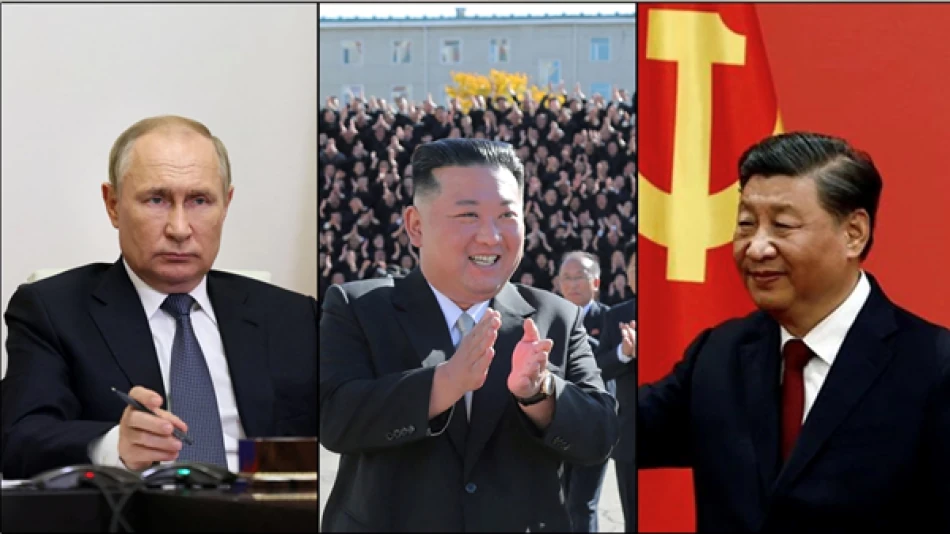
Putin, Xi, and Kim Attend Impressive Military Display in China
Kim Jong Un's Return to Beijing Signals New Phase in China-North Korea Strategic Partnership
North Korean leader Kim Jong Un will make his first trip to China in six years next week to attend a military parade commemorating the 80th anniversary of the end of World War II, marking a significant diplomatic moment that brings together three of the world's most isolated authoritarian leaders. The visit represents a potential reset in China-North Korea relations and could reshape regional power dynamics as Beijing seeks to strengthen its influence amid growing tensions with the West.
A Rare Gathering of Authoritarian Leaders
Kim will join Chinese President Xi Jinping and Russian President Vladimir Putin at the military parade in Beijing next Wednesday, creating an unprecedented summit of leaders who have increasingly found themselves at odds with Western democracies. This marks the first major international gathering Kim has attended since assuming power in late 2011, highlighting the strategic importance both he and Beijing place on this diplomatic moment.
The Chinese Foreign Ministry confirmed that Kim will be among 26 foreign leaders attending the military parade, with Assistant Foreign Minister Hong Li emphasizing that "maintaining, consolidating and developing China-North Korea relations is the consistent position of the Chinese Communist Party and the Chinese government."
Strategic Timing and Regional Implications
China's Calculated Diplomatic Move
The invitation comes at a critical juncture for regional security. China's decision to host Kim alongside Putin sends a clear message about its commitment to maintaining influence over North Korea, particularly as the hermit kingdom has shown signs of strengthening ties with Russia over the past year. This gathering serves Beijing's broader strategy of presenting an alternative power bloc to Western-led international institutions.
Breaking Six Years of Diplomatic Distance
Kim's last visit to China in 2018 came during a period of intense diplomacy that included summits with South Korea and the United States. His return now suggests that North Korea may be ready to re-engage with its traditional ally after years of focusing primarily on nuclear development and pandemic isolation. The timing also indicates that China sees value in bringing North Korea back into its sphere of influence as regional tensions escalate.
Historical Context and Future Implications
The World War II commemoration provides convenient cover for what is essentially a strategic realignment meeting. China and North Korea's shared history fighting against Japanese occupation during the war offers symbolic legitimacy for renewed cooperation. However, the real agenda likely centers on economic cooperation, security coordination, and presenting a united front against what all three nations view as Western containment efforts.
For Kim personally, this represents his most significant international diplomatic engagement in years and could signal North Korea's readiness to emerge from its self-imposed isolation. The presence of Putin adds another dimension, potentially facilitating trilateral cooperation on issues ranging from energy supplies to military technology transfers.
Regional Power Dynamics at Play
This summit occurs against the backdrop of strengthened U.S.-South Korea-Japan security cooperation and increasing military exercises in the region. The gathering of Kim, Xi, and Putin represents a direct response to these developments and could accelerate the formation of a more formal alliance structure in Northeast Asia.
The visit also comes as China faces its own economic challenges and seeks to maintain stability on its northeastern border. A cooperative North Korea serves Beijing's interests by preventing refugee flows and maintaining a buffer against U.S. military presence in South Korea.
Most Viewed News

 Layla Al Mansoori
Layla Al Mansoori






